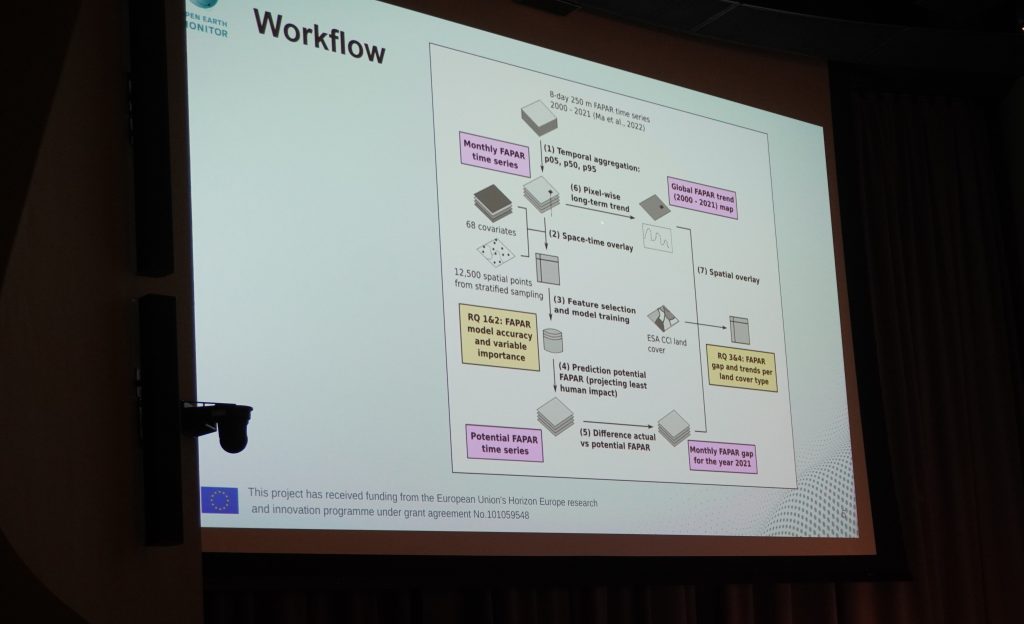Application Deadline: 24th of November 2019
Possible start date: 1st of January 2020
Duration: 3+ years,
Job location: Agro Business Park 10, Wageningen
Bruto monthly salary: The gross monthly salary starts at € 3.095,- in the first year and will increase to € 3.872,- in the third year of your employment (with possible bonuses)
Job type: Post-doctoral researcher
Fields: geoinformatics, geo-databases, pedometrics, environmetrics, environmental sciences
Employer: OpenGeoHub foundation
Job description
OpenGeoHub (Stichting OpenGeoHub) is a not-for-profit research foundation with headquarters the Agro Business Park, Wageningen, the Netherlands. We aim to become world experts in producing global and regional spatial predictions of soil, vegetation and meteo variables. For this we use High Performance Computing / optimisation and state-of-the-art Machine Learning.
OpenGeoHub foundation is looking for a Post-doctoral researcher in the field of geo-computation and geoinformatics (programming in R, Python, Julia and similar), specifically focused on using state-of-the-art Machine Learning algorithms to increase mapping accuracy, develop more automated methods of spatial prediction, organize prediction comparisons using large Earth Observation data sets (Sentinel 2, Landsat) and implementing of parallelisation in cluster or cloud solutions (Google Earth Engine, Amazon AWS, OVH). You would work for OpenGeoHub on current and future European Commission-funded and other international projects where there is a need to develop new solutions for geocomputing, optimize and automate modeling frameworks and deliver scientific outputs in a timely manner. You would also actively contribute to the www.OpenLandMap.org data portal and similar.
You would also spend a significant amount of their time writing research proposals and publications, meeting with senior researchers (weekly), and will be encouraged to network with other researchers and groups.
Your profile
Minimum requirements:
- You have a PhD degree in the field of geoinformatics, geo-information science, environmental sciences, statistics and/or computer science.
- You have excellent knowledge of FOSS including Linux OS, programming languages R and/Python, and some knowledge of C# and/or Javascript.
- You have experience with working with large multidimensional arrays including time-series of Sentinel and Landsat imagery.
- You enjoy debugging code (github, gitlab) and installing server-based systems (via batch scripting, docker or similar).
- You have sufficient knowledge of geo-databases and can independently install and upgrade databases (PostGIS, CouchDB).
- You have an interest in organizing ML benchmarking and running Kaggle.com-type competitions.
- You are fluent in English.
- You have high motivation to document your work and publish results in prestigious peer reviewed journals.
- You are willing to help prepare research proposals and apply for research funding.
INFORMATION AND APPLICATION
Questions
Questions regarding this position can be submitted via: support@opengeohub.org
Applications, including (1) a CV, (2) a statement of your interest and vision, and (3) self-assessment based on the minimum requirements, should be uploaded via this link. Read more about the general submission procedure.
Our offer
We offer a potentially full time position with an initial contract for 3 years, within a very stimulating international innovation and research environment. You will work in a dynamic ecosystem with enthusiastic colleagues. There may be frequent international travels.
- The gross monthly salary starts at €3.095,- in the first year and will increase to €3.872,- in the fourth year of your employment (with possible bonuses);
- A holiday allowance of 8% of the gross annual salary;
- Minimum of 29 holidays if in full-time employment;
- Professional and personal development programs (up to 2 days per week for personal development);
We strongly encourage a high degree of responsibility and independence, while collaborating with close colleagues through virtual groups (Mattermost, WhatsApp). Flexi-hours and remote working is also possible.

